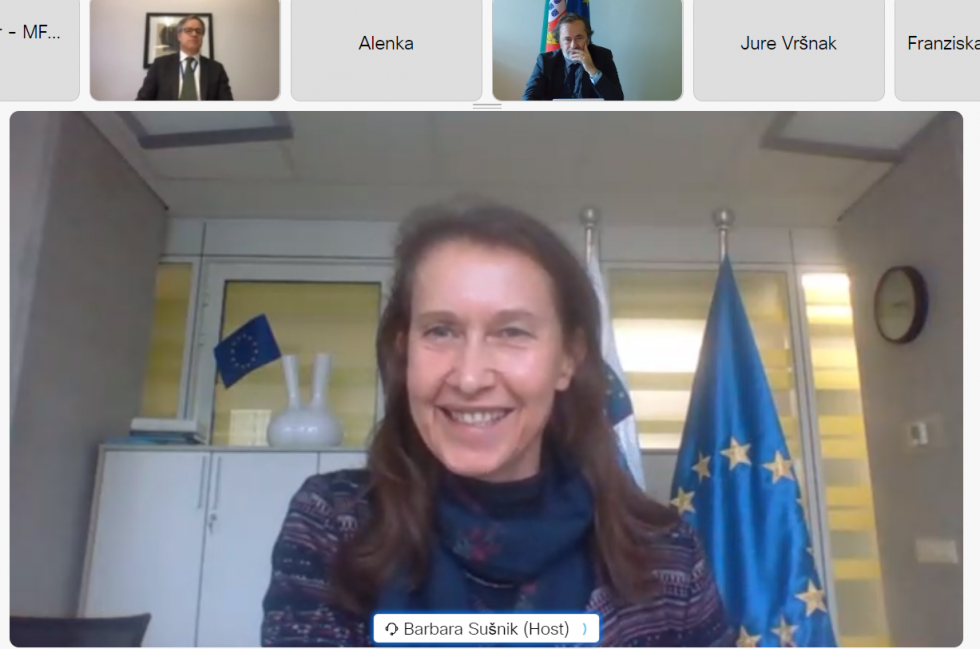Consultations of Directors-General for EU Affairs of the Trio Presidency as it draws to a close
- Ministry of Foreign Affairs

Director-General Barbara Sušnik | Author Ministrstvo za zunanje zadeve
The consultations with Director Axel Dittmann on the German side and Deputy Director Nuno Lúcio for the Portuguese side aimed to assess the realisation of the joint 18-month Presidency programme and review the achievements of the Slovenian Presidency and plans until the end of this year.
In addition to effectively tackling COVID-19, for which at that time concrete measures had yet to be put in place, substantial progress has been achieved in building a European Health Union. Based on this experience, the Slovenian Presidency has made an important contribution to strengthening the EU’s resilience to all types of crises. The adoption of the Council conclusions on enhancing preparedness, response capability and resilience to future crises ensured that this important topic is kept high on the agenda of European decision-makers.
The Slovenian Presidency has also made significant progress in other priority areas. Director-General Barbara Sušnik highlighted the post-pandemic economic recovery, with the Council of the EU having already approved 22 recovery and resilience plans, thereby enabling the launch of investments and reforms in the member states.
Slovenia has been instrumental in opening negotiations on the “Fit for 55” climate energy package. A progress report will be prepared in December, paving the way for a final agreement between member states. The participants agreed that it was crucial to reach an agreement on the package, not least in response to the rising energy prices in Europe, especially in terms of the use of renewables.
The Directors-General highlighted the intensive work on the Digital Services Act and the Digital Markets Act. After eleven months of negotiations, an agreement was reached between the member states during the Slovenian Presidency, allowing negotiations with the European Parliament to start.
As one of the Slovenian Presidency’s key achievements, Director-General Sušnik picked out the agreements reached on the proposals for directives on adequate minimum wages and on pay transparency that are aimed at ensuring fair conditions for workers in the EU.
The Portuguese and German counterparts agreed that the 18-month programme had been largely implemented and went on to congratulate the Slovenian Presidency on the successfully accomplished task.
